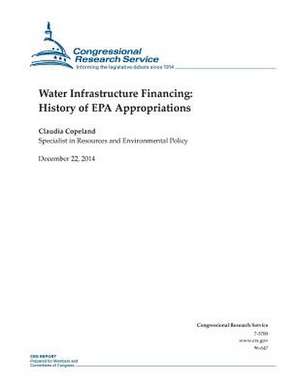Water Infrastructure Financing
Autor Congressional Research Serviceen Limba Engleză Paperback
Preț: 123.43 lei
Nou
Puncte Express: 185
Preț estimativ în valută:
23.62€ • 24.35$ • 19.94£
23.62€ • 24.35$ • 19.94£
Carte disponibilă
Livrare economică 10-24 februarie
Preluare comenzi: 021 569.72.76
Specificații
ISBN-13: 9781505875140
ISBN-10: 1505875145
Pagini: 38
Dimensiuni: 216 x 279 x 2 mm
Greutate: 0.11 kg
Editura: CREATESPACE
ISBN-10: 1505875145
Pagini: 38
Dimensiuni: 216 x 279 x 2 mm
Greutate: 0.11 kg
Editura: CREATESPACE
